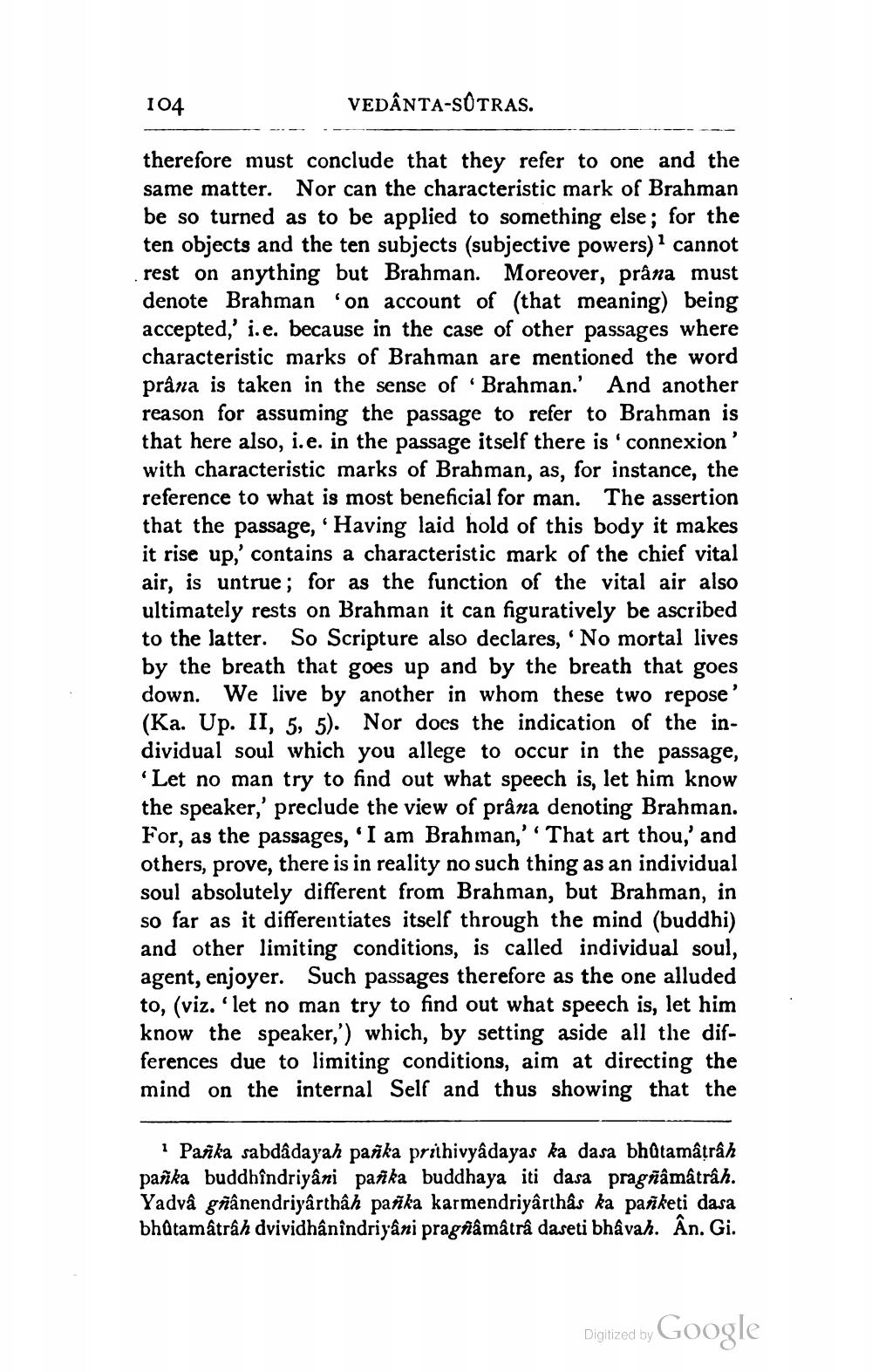________________
104
VEDÂNTA-SÛTRAS.
therefore must conclude that they refer to one and the same matter. Nor can the characteristic mark of Brahman be so turned as to be applied to something else; for the ten objects and the ten subjects (subjective powers) cannot rest on anything but Brahman. Moreover, prâna must denote Brahman 'on account of (that meaning) being accepted,' i.e. because in the case of other passages where characteristic marks of Brahman are mentioned the word prana is taken in the sense of Brahman.' And another reason for assuming the passage to refer to Brahman is that here also, i.e. in the passage itself there is 'connexion' with characteristic marks of Brahman, as, for instance, the reference to what is most beneficial for man. The assertion that the passage, . Having laid hold of this body it makes it rise up,' contains a characteristic mark of the chief vital air, is untrue; for as the function of the vital air also ultimately rests on Brahman it can figuratively be ascribed to the latter. So Scripture also declares, No mortal lives by the breath that goes up and by the breath that goes down. We live by another in whom these two repose' (Ka. Up. II, 5, 5). Nor does the indication of the individual soul which you allege to occur in the passage, 'Let no man try to find out what speech is, let him know the speaker,' preclude the view of prâna denoting Brahman. For, as the passages, 'I am Brahman,'. That art thou,' and others, prove, there is in reality no such thing as an individual soul absolutely different from Brahman, but Brahman, in so far as it differentiates itself through the mind (buddhi) and other limiting conditions, is called individual soul, agent, enjoyer. Such passages therefore as the one alluded to, (viz. 'let no man try to find out what speech is, let him know the speaker,') which, by setting aside all the differences due to limiting conditions, aim at directing the mind on the internal Self and thus showing that the
1 Pañka sabda dayah pañka prithivyâdayas ka dasa bhatamâtrâh pañka buddhîndriyâni panka buddhaya iti dasa pragñâmâtrâh. Yadva gñanendriyârthâh paska karmendriyârthâs ka panketi dasa bhůtamâtrâh dvividhânîndriyâni pragnâ mâtrâ daseti bhavah. Ân. Gi.
Digitized by
Digized by Google




